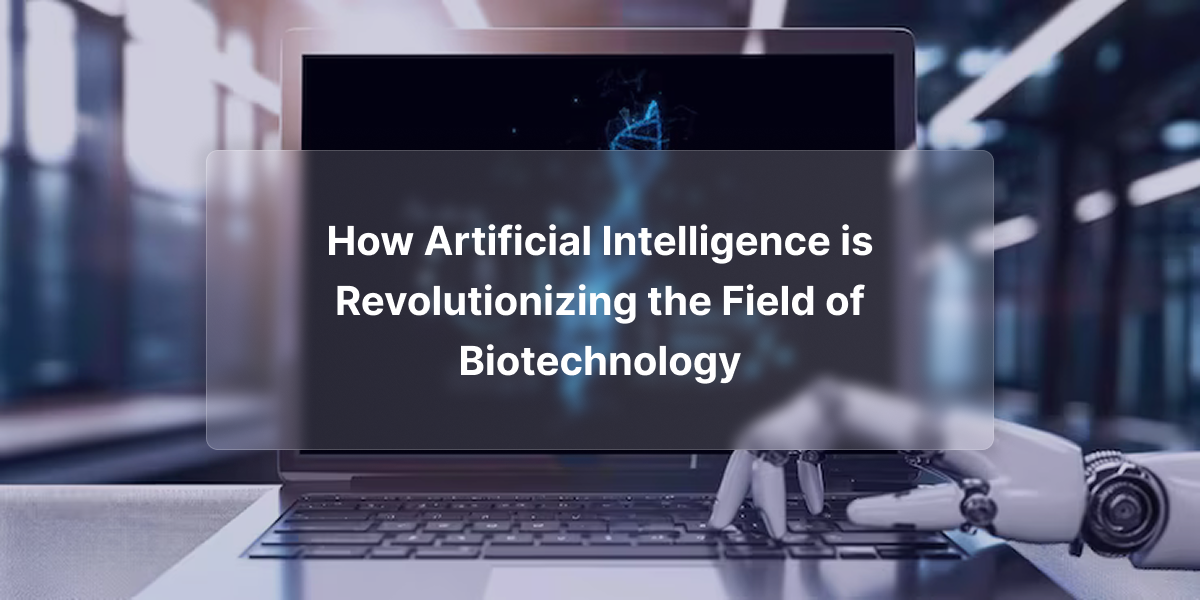Introduction
Artificial Intelligence (AI) has rapidly moved beyond tech labs and software applications to become a driving force in life sciences. In biotechnology, AI is not just a supportive tool it is transforming how researchers discover drugs, decode genetic information and design new therapies. From speeding up clinical trials to predicting protein structures, AI is enabling breakthroughs that were once thought to be decades away. This revolution is reshaping the future of healthcare, agriculture and even environmental sustainability.
1. Accelerating Drug Discovery
Traditional drug discovery is a time-consuming process that can take 10–15 years and billions of dollars. AI is cutting this timeline dramatically by:
-
Analyzing massive datasets of chemical compounds in minutes.
-
Predicting how molecules interact with human cells.
-
Identifying promising drug candidates faster than human-led research.
For example, DeepMind’s AlphaFold cracked the protein-folding problem a challenge that had stumped scientists for 50 years opening doors to more targeted drug design.
2. Personalizing Medicine with AI
One of the most exciting shifts is the move towards personalized medicine. AI can:
-
Analyze patient genetic data to suggest tailored treatments.
-
Predict how individuals will respond to specific drugs.
-
Help doctors design therapies that minimize side effects and maximize effectiveness.
This means a future where treatments for cancer, rare diseases, or chronic conditions are no longer “one-size-fits-all,” but instead customized to each person’s biology.
3. Advancing Genomics and DNA Research
AI algorithms are now vital in genomics, where they:
-
Process and interpret billions of DNA sequences rapidly.
-
Detect mutations linked to diseases.
-
Guide CRISPR-based gene editing with higher accuracy.
This has huge implications not just for curing genetic disorders but also for improving crop yields and fighting global food insecurity.
4. Transforming Agriculture and Environmental Biotech
Biotechnology is not limited to human health — and AI is making its mark in agriculture and sustainability too. Examples include:
-
AI-driven biotech to engineer drought-resistant crops.
-
Monitoring soil microbiomes to improve food production.
-
Developing eco-friendly enzymes for waste management and plastic recycling.
AI is helping solve real-world challenges like climate change and global hunger through smarter biotech innovations.
5. Smarter Clinical Trials and Research
Clinical trials are often slowed down by recruitment challenges and data management. AI speeds this up by:
-
Identifying suitable participants through electronic health records.
-
Predicting trial outcomes more accurately.
-
Automating data analysis, reducing human error.
This means safer, faster, and more reliable development of new therapies.
6. Ethical and Regulatory Challenges
While the benefits are massive, the rise of AI in biotechnology also brings important challenges:
-
Data privacy: handling sensitive genetic and medical data responsibly.
-
Bias in algorithms: ensuring AI models do not exclude minority populations.
-
Regulatory frameworks: governments need updated policies to manage AI-driven biotech safely.
Balancing innovation with responsibility will be key to long-term success.
Conclusion
Artificial Intelligence is revolutionizing biotechnology by accelerating discoveries, enabling personalized treatments and driving innovations in agriculture and sustainability. What once took years in the lab can now be achieved in months or even days thanks to AI’s computational power. As researchers, doctors and policymakers embrace this transformation, biotechnology is set to reshape not just medicine, but the very way we live and interact with the world.
The future of biotech is not just human-led it is human and AI working together to unlock the next wave of scientific breakthroughs.

